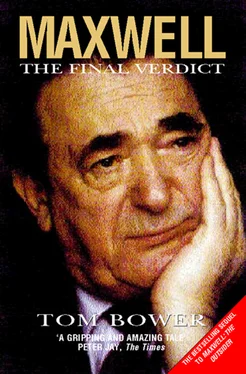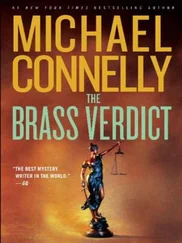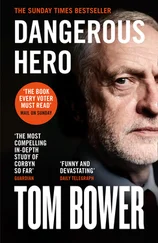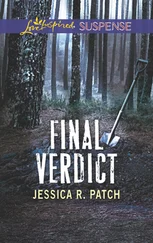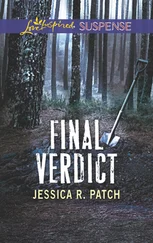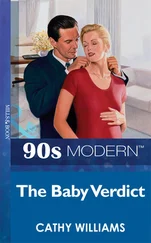The public announcement of Maxwell’s interest preceded his arrival in New York. ‘I’m negotiating to save the newspaper,’ he boomed soon after touch-down. Although there were only nine days left in which to finalize a deal, he threatened that the unions had just five, until 11 March, to capitulate to his demands. The following morning he met McDonald on the tenth floor of Macmillan’s Manhattan offices. The union leader had already said, ‘Maxwell will not be granted “management rights” but we will of course consider any demands he makes.’ The hint of concessions, albeit limited (the unions were determined to deny the aspiring proprietor the absolute power of hiring and firing), had been music to Maxwell, who had demanded that 800 of the 2,300 employees be dismissed but had rashly conceded, ‘I’m not asking for “management rights”.’
At the meeting, McDonald noticed another sign of weakness when Maxwell announced, ‘I want the paper.’ True to form, their conversation was marked by the tycoon’s particular charm and cordiality, precisely what McDonald had been warned about by a British trade union leader: ‘He’s a scoundrel. Get everything down on paper. He charms the birds off the trees and then shoots them.’ McDonald knew that he had a deal if all nine unions on the paper gave a few concessions for the redundancies which the Tribune company was funding.
The negotiations followed Maxwell’s favoured pattern. Each union was given its own office so that he could shuttle between the fiefs, playing upon old rivalries. This kind of theatre gave him the opportunity to shine – as a printer, a publisher and a professional. ‘I know newspapers and trade unions better than anyone else,’ he told Robert Pirie, once again advising on behalf of Rothschild Inc. ‘Leave the negotiations to me.’ The banker watched Maxwell and Charlie Wilson, quickly flown from London, moving from office to office in a punishing schedule saying ‘yes and no often to things they didn’t understand’.
‘I bet Murdoch couldn’t beat this,’ smirked Maxwell to Hoge for the umpteenth time.
‘These are the concessions you need from the unions to make profits,’ warned Hoge. But Maxwell ignored the advice. ‘He doesn’t analyse,’ grimaced Hoge. ‘He wants the newspaper.’
Maxwell wanted the publicity just as much. Television camera crews and journalists were encouraged to camp in the Macmillan building to await appearances and pronouncements. ‘The progress made was terrific,’ proclaimed a grinning McDonald after the first day. The crisis hit at the weekend when, inevitably, Maxwell reneged on his earlier promises. He said after all that he wanted the ‘management rights’ which the unions had adamantly refused to concede. It was a good moment for Maxwell to play his ace. ‘I’m going back to London now,’ he told the startled negotiators on Saturday evening, 9 March. As he passed through the waiting journalists his parting judgment was intentionally ominous: ‘I’m not so optimistic.’ He added, ‘When I pass a belt, I can’t resist hitting below it.’ This was vintage Maxwell, exhibiting the qualities which a decade earlier had humbled Britain’s print unions.
Yet his return to London on Saturday night was not really an example of astute tactics. Rather, it was under the orders of Kevin. Maxwell was obliged, said his son, to attend Betty’s seventieth birthday party. For weeks his diary had included the engagement, embellished with an instruction in capitals to ‘KEEP FREE’. He had already missed the family dinner that evening in Oxford.
One hundred and fifty guests had been invited to ‘Betty Maxwell’s Special Birthday’ in the Dorchester Hotel’s Orchid Room. Included among the throng were the Duke of Bedford and Lords Forte, Sieff, Stevens, Weidenfeld and Young. Other well-known City celebrities were Eric Sheinberg, Richard Branson and Sirs Kit McMahon, Alastair Morton, Frank Roberts and Michael Richardson. Among the more controversial guests were Jean Baddeley, Sir Edward du Cann, Lady Duncan-Sandys, Vivien Duffield, Joe Haines, Lady Porter and Gerald Ronson. The most expensive guest was Boris Pankin, then the Soviet ambassador in Prague. His account for staying overnight at the hotel, paid by MCC, would amount to £2,011.
The family had attempted to inject humour into the celebration, although others would remark on the gauche taste. Each of the ten tables was named after one of the houses inhabited by the Maxwells in London, Oxford and France, and not forgetting the Lady Ghislaine . The main course was Lamb Meynard (Betty’s maiden name) served with Légumes du Maurier (Maxwell’s adopted name when he met Betty). The wines, costing £95 per bottle, were grand cru . The £250,000 dinner, to be paid for by MCC, was certain to be memorable – but not in the manner Betty’s children had intended.
Arriving late, Maxwell appeared distinctly uncomfortable. As he mingled with his guests, he made little effort to pretend he was enjoying the occasion. His presents to Betty – jewellery and an elegantly bound book describing their life – had been arranged without his knowledge by someone else. After picking at his food, constantly glancing at his watch and ignoring his wife, Maxwell rose. While his guests were still eating, Maxwell began uttering a short speech about his negotiations in New York, practically forgetting his wife. ‘I’ve now got to leave for New York,’ he ended, already walking towards the door, abandoning his guests and family with their forks in mid-air and their mouths open in astonishment. With barely a farewell, he walked through the exit. He would neither wait for the dance nor see the midnight trumpet fanfare with the champagne toast. His wife could cut her birthday cake without him. She could make her own speech without him. He did not care that she was upset. Betty was his doormat. And she would sleep the night in the hotel – she was not welcome in his penthouse.
Outside, in Park Lane, Maxwell fumed, not about the wretched affair he had left behind but about his temporary chauffeur. He needed to reach the Battersea heliport before it closed and had no confidence in the man. Cursing, he abandoned the hapless chauffeur on the pavement, heaved himself into the driving seat and sped furiously towards the river. Within the hour he was flying back to New York. The thought that he could have flown on Concorde the following morning and so not have missed anything did not occur to him.
During that seven-hour flight he could muse on his new adventure. Owning the newspaper would be compensation for other recently failed ambitions. He had considered buying Paramount Pictures, and one year before had even bid for Sears Tower in Chicago. After a weekend’s negotiation, it had become clear that his sole interest was in securing a name-change for one of the world’s tallest buildings. ‘If I buy this,’ he had said, ‘it must be a condition that it will be renamed Maxwell Towers.’ Shortage of money had eventually curtailed the negotiations. But this time he would succeed. Here was a deal made in heaven: he would acquire a newspaper, and not only for nothing – he would actually be paid for assuming the ownership. He knew he would still be losing $1 million every week thereafter but the prize, the fame and $60 million in cash was too great to ignore. He needed that money badly even if he would soon need to pay it to the print workers.
During his absence, Charlie Wilson had continued the negotiations, alleviating fears that Maxwell might back out. They’re rewriting what we don’t like,’ McDonald reported to his colleagues. Maxwell’s bluff had been called when the union leader had telephoned London: ‘Come back. We’re still talking.’
Maxwell’s eagerness disturbed Hoge. ‘You’re giving too much away,’ he warned. ‘You’re throwing away money on overtime. If you don’t fight hard now, you’ll lose.’
Читать дальше
